Maya Angelou said, “Words mean more than what is set down on paper. It takes the human voice to infuse them with shades of deeper meaning.” Nobel Prize-winner books hold such a high baton not simply because they are words written on paper but because the words Nobel Laureates write are so ethereal that we are bound to merge our world with theirs.
Nobel laureates ignite a revolution that stretches the boundaries of human thought and stirs the conscience of contemporary times. These books have witnessed the testament of time, and through their novellas, they have touched the themes of the real world, acted as a fierce critique of injustice, and offered wisdom that not only transcends boundaries but also the passage of time.
If you are looking to enhance your literary knowledge, these Nobel bore scrutiny and cut the edge to be every reader’s pick because of the fine, artistic style of narrating and traversing impactful themes in a compact book.
Classic Works By Nobel Prize Winners
There are books, and then there are books that leave an ache and rattle every bone in your body just by the words these Nobel Laureates write. These 3 classic works by Nobel Prize winners are not just relics of the past but are timeless questions they dared to ask that shaped the depth in which we think, the beauty we see, and the truth we seek.
1. The Old Man and the Sea by Ernest Hemingway
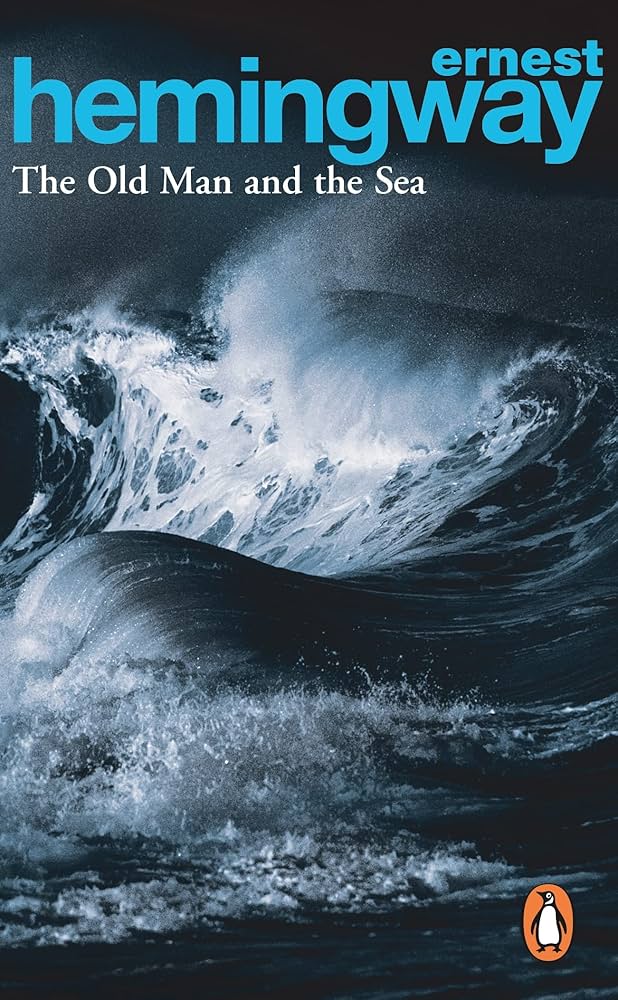
Nobel Prize in Literature 1954
“But man is not made for defeat,” he said. “A man can be destroyed but not defeated.”
The story centers around an old Cuban fisherman, Santiago, and his apprentice Manolin. Santiago, after repeated failures, over 84 days, finally decides to embark on a daring journey of catching a giant Marlin. During this, he becomes involved in a dangerous brawl with the shark and other fish that follow.
How we fight matters more than winning or losing the battle, Ernest Hemingway’s way of capturing Man vs Nature and his lesson on resilience still play a significant part because we are the product of globalization, and uncertainties loom over our existence. This Novel is an essential read in today’s fast-paced world and allows you to be resilient in the face of adversity. It has an intricate depth of explaining the cycle of life and death, and perseverance.
2. Gitanjali by Rabindranath Tagore
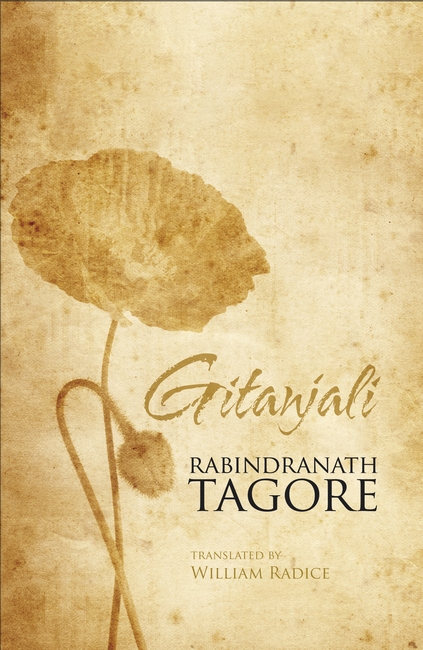
Nobel Prize in Literature 1913
“Oh my only friend, my best beloved, the gates are open in my house — do not pass by like a dream.”
The first person of non-European origin to receive the Nobel Prize for Literature was Rabindranath Tagore in 1913. Gitanjali, or song offerings, was translated from Bengali to English by Tagore himself. The poems of Gitanjali analyze the sacred connection between spirituality and human experiences. His poems are well known for their simplicity of language yet the intense feeling that they evoke in human minds and hearts.
The kind of god Rabindranath Tagore talks about in his book is not a traditional god, but the god of beauty and compassion. Tagore tells us to live a life of affection and not a materialistic lifestyle and this is exactly why one should pick up this and read with ease of mind.
3. One Hundred Years of Solitude by Gabriel García Márquez
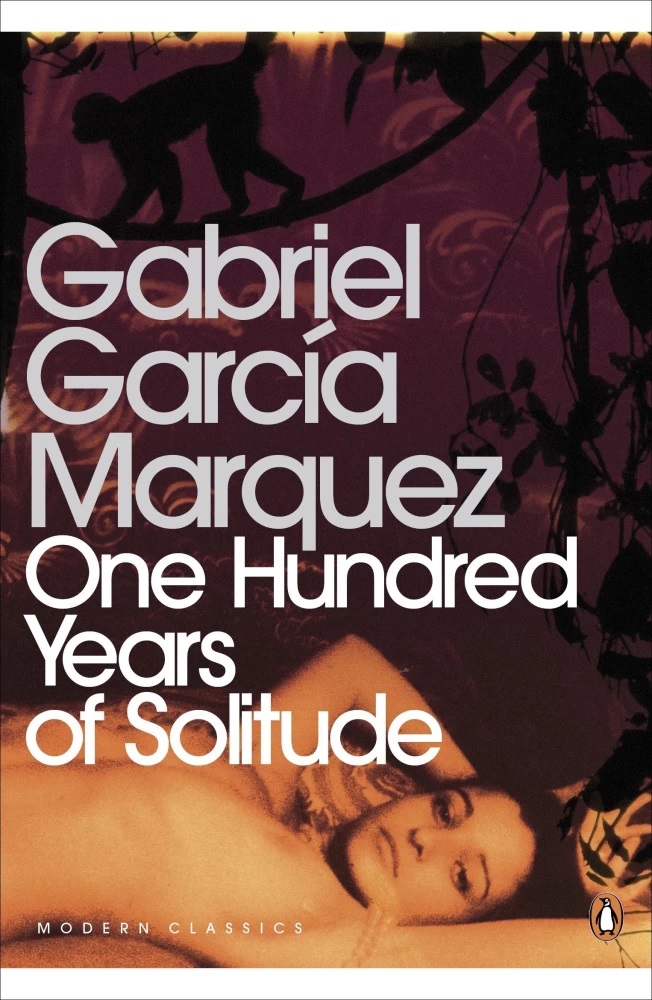
Nobel Prize in Literature 1982
“They were so close to each other that they preferred death to separation.”
This novella explores the theme of magical realism as the author navigates his way through the multigenerational history of the Buendia family and the fictional town of Macondo. Gabriel blurs the line between reality and illusion as he blends supernatural events with realities and explores the themes of intimacy, war, and sensuality.
If you think the book has a single plot, then you are wrong, the book does not have a single plot or a single timeline. Marquez, through his narrating essence, beautifully tackles the triumphs faced by Latin American nations, particularly, Colombia. It grapples with political instability, the aftermath of colonialism, and socioeconomic disparity. The journey Marquez takes you through in this book is surreal and profound.
Modern Masterpieces By Nobel Laureates
Beyond the Renaissance, we have a few Nobel Prize book winners in literature that will alter your brain chemistry because these visions are like grenades, bombing the debris of suffering with a question mark. These are the books that happen to you, that make you question the transformative power of love, culture, and identity.
4. Never Let Me Go by Kazuo Ishiguro
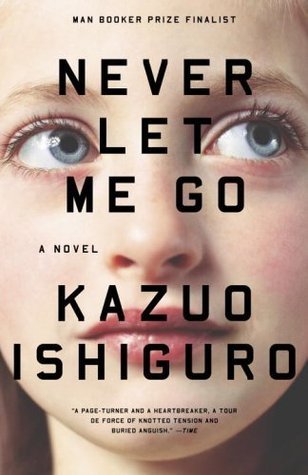
Nobel Prize in Literature 2017
“Memories, even your most precious ones, fade surprisingly quickly. But I don’t go along with that. The memories I value most, I don’t ever see them fading.”
Kazuo Ishiguro takes us to a dystopian world of 1990s England. Ishiguro narrates the lives of ordinary citizens who are prolonged through a state-sanctioned program of human cloning. This story is no ordinary; it talks about three friends, Tommy, Kathy, and Ruth, and is majorly divided into three parts.
Ishiguro, very subtly tackles the question: “What does progress cost?” The central plot revolves around cloned humans bred solely to donate their organs. Through a very simple style of narration, Ishiguro explores the concept of the Dehumanization of “other” and tells us how discrimination works even in the dystopian world he has created, where cloning is referred to as lower class. This haunting novel stirs your mind and remains the most compelling work in literature.
5. The Years by Annie Ernaux
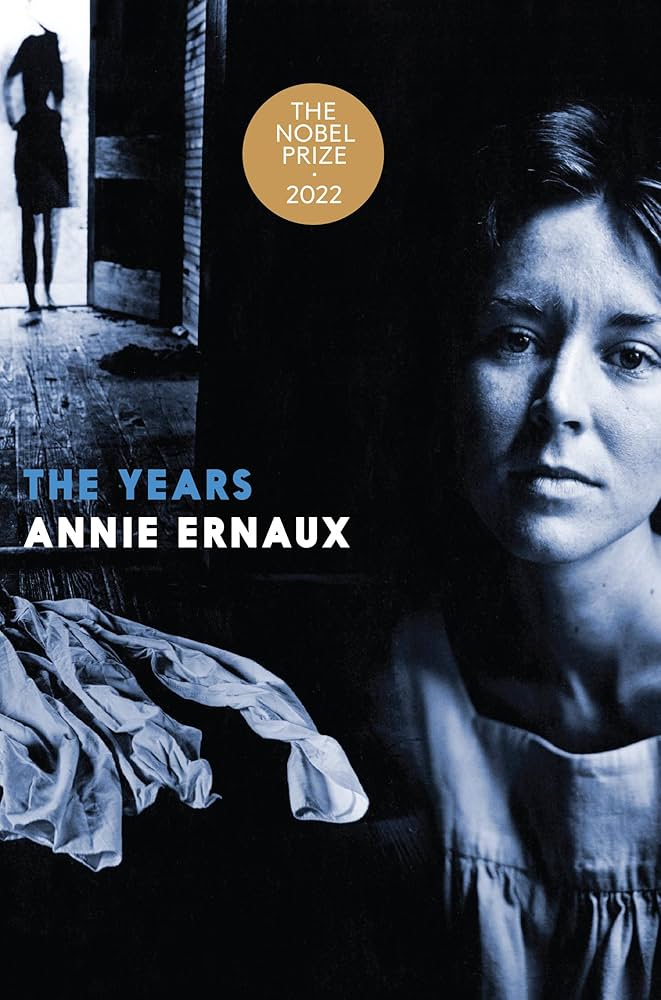
Nobel Prize in Literature 2022
“To exist is to drink oneself without thirst.”
Ernaux’s style of writing a memoir in the form of social chronology: the idea itself stands out in the crowd. The Years is a condensed piece of art, which has a little bit of everything from pop culture to feminism and a lot of Ernaux’s life.
Ernaux majorly delves into the life of French society in the aftermath of World War II to the early 2000s. The concept of social class and mobility, along with the experiences of women in France especially reproductive rights and the shifting landscape of feminism has been exquisitely discussed.
This book is essential for those who want to draw a parallel between the experiences of women in the bygone times and modern times. If one wants to delve into the marvellous work on feminism and the catastrophe of World War II, this Novel is a must-read.
6. Snow by Orhan Pamuk

Nobel Prize in Literature 2006
“As much as I live I shall not imitate them or hate myself for being different to them”
Orhan Pamuk, the numero uno of Turkey, talks about his hometown and, in this novella, he explores the theme of cultural and political clashes in Turkey. Pamuk talks about the tension between secularism and extreme Islamism, and the idea of individual identity in a dismantled society, with a subtle sense of humor and social commentary while explaining the complexities of life in modern Turkey.
Heavy snowfall shuts the town for almost three days and during that the protagonist, Ka, gets into heavy debates with a communist, a fascist nationalist, possible Islamic extremists, moderate Muslims, young Kurds, the military, the Secret Service, the police, and most particularly, a revolutionary actor. And through all this political and ideological maelstrom, love and lust suddenly emerge.
If you are drawn toward knowing the idea of the cultural and political precariousness of a transcontinental country, this book is for you especially if you are a student of political science.
Thought-Provoking And Philosophical Books By Nobel Laureates
“What did I just go through?” is the most common reaction after turning the last page and this will be the same reaction when you go through these five books mentioned below. These Nobel Laureates dare you to wrestle with the idea of identity, memory, and history and hand you the mirror to reflect.
7. The Myth of the Sisyphus by Albert Camus
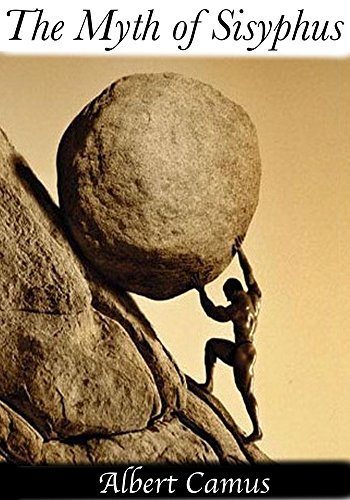
Nobel Prize in Literature 1957
“We get into the habit of living before acquiring the habit of thinking.”
Camus, the pioneer of absurdism, sees Sisyphus as an absurd hero who knows how to live to the fullest, hates the thought of death, and is forced to do meaningless tasks. Camus navigates through absurdism and searches for meaning in the meaningless world, using Sisyphus the Greek mythological character, as a metaphor for humans.
Camus in his time, dealt with the greater problem of how the past and the future are not important for dwelling; rather, one must live in the present and this right here tells a lot about our society today. This book is essential for those seeking deep psychological answers to the question of existence and beyond.
8. Blindness by José Saramago
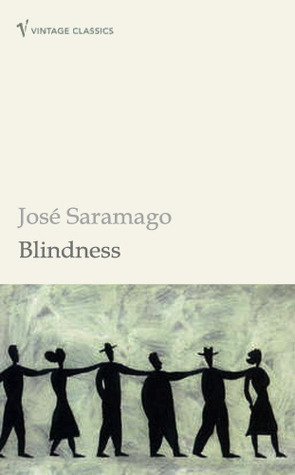
Nobel Prize in Literature 1998
“The only thing more terrifying than blindness is being the only one who can see.”
Saramago, in his Nobel Prize winning book, explores the breakdown of society and morality through a mysterious epidemic of blindness, using the literal loss of sight as a metaphor for the loss of vision in a broader sense.
The author uses the metaphor of an epidemic of blindness to describe how society has turned a blind eye to injustice and is suffering from moral decay. Saramago’s intricate style of writing forces readers to square up to the question of dying humanity, and the darkness that follows after the collapse of the society.
9. Waiting for Godot by Samuel Beckett
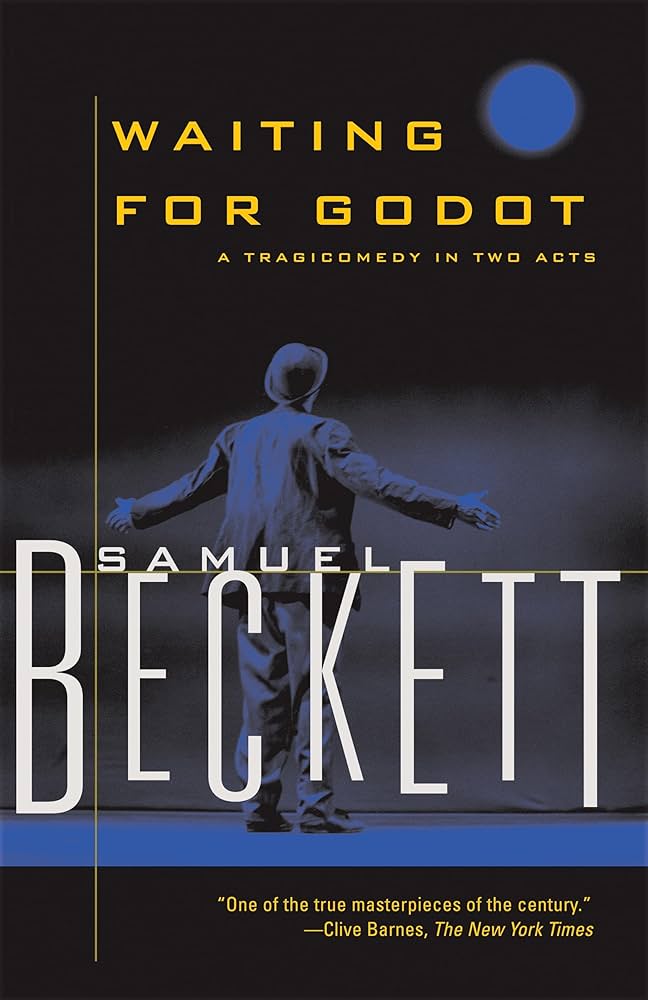
Nobel Prize in Literature 1969
“The tears of the world are a constant quantity. For each one who begins to weep somewhere else another stops. The same is true of the laugh.”
Beckett, in his novella Waiting for Godot, champions the theatre of the absurd. He lets us see how two characters, namely, Vladimir and Estragon are on an unending quest for a mysterious figure named Godot, who never really appears. This play has been studied extensively to understand the surreal feeling of existentialism and absurdism.
Despite its absurdity, this book talks about universal human experiences of love, hope, despair, and waiting. Samuel’s art of storytelling illuminates the setting of the plot majorly revolves around post-war disillusionment and the devastation that followed the war.
10. The Sun Also Rises by Ernest Hemingway
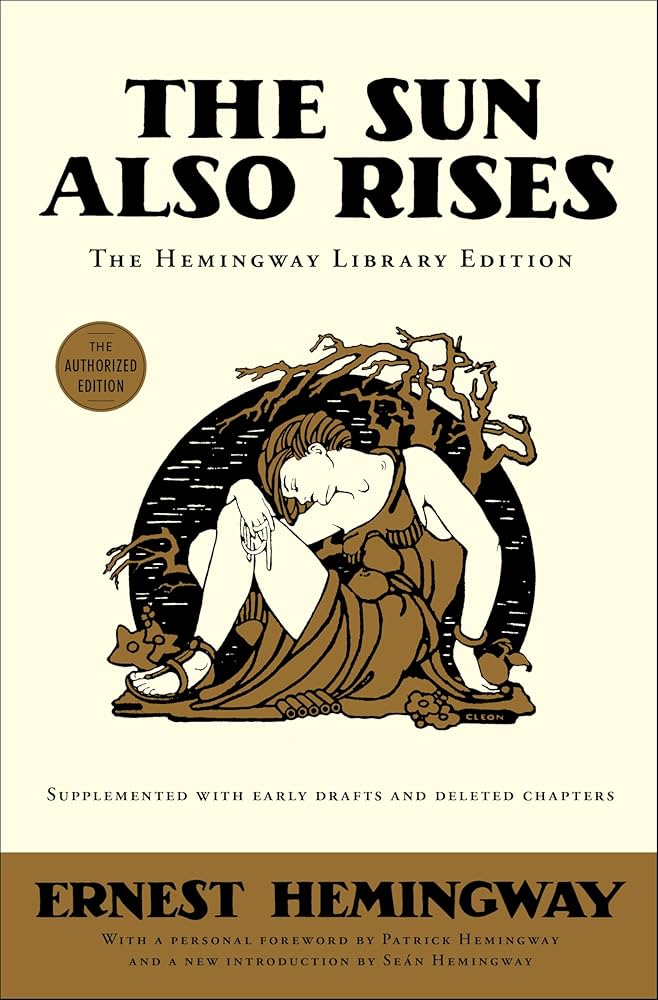
Nobel Prize in Literature 1954
“You can’t get away from yourself by moving from one place to another.”
We will once again talk about the man, the myth, and the legend that is Ernest Hemingway, the writer who died tragically. This time we have his novella, The Sun Also Rises. The lives of the so-called Lost Generation a group of men and women whose early adulthood was engulfed by World War I are shown in The Sun Also Rises.
This terrible conflict, known as the Great War, established new benchmarks for wartime death and immorality. Many people’s convictions about the traditional ideals of manhood, love, and faith were destroyed. Members of the generation who served and fought in the war experienced a significant deal of moral and psychological aimlessness in the absence of these ingrained beliefs.
11. Song of Solomon by Toni Morrison
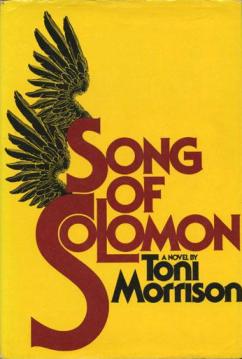
Nobel Prize in Literature 1993
“If you surrendered to the air, you could ride it.”
Morrison probes the burden of history, family secrets, and the search for autonomy through Milkman Dead’s life. It is a powerful tapestry of Black American experience, myth, and memory. This book has one of the most profound beginnings and endings that keeps the readers hooked.
African-American history is a complex one and Toni Morrison, one of the best feminist writers of all time, enormously talks about racial injustice, the desolation of black identity, and the legacy of slavery history. The author navigates the dynamics of black families and the historical trauma that challenges them to face the world. With a deeply personal vivid style of narration, Morrison makes a lasting impact on the reader’s minds and hearts and continues to resonate with people all across the world.
Conclusion
In a world that often hushes dissent, the power of silence is well incorporated in these books. “A reader lives a thousand lives before he dies, said Jojen. The man who never reads lives only one.” quoted by George R.R. Martin. These profound Nobel- Prize winner books in literature engage with complex themes in the contemporary world through mere words. They distill the human conditions into something raw and unforgettable. Having these 11 books in your safe abode is carving a fine mark in the literary world.
FAQs
Nobel Laureates such as Gabriel Garcia Marquez’s One Hundred Years of Solitude, Jose Saramago’s Blindness and Kazuo Ishiguros’s Never Let Me Go are my top picks from the list majorly because I resonate a lot with the creative style and the lucidity of the word flow. Apart from these books numerous books missed the Nobel Prize by a thin hair but are worth all the appreciation like Arundhati Roy, H.G. Wells, and Chinua Achebe.
I would suggest you start with Gabriel Garcia Marquez’s One Hundred Years of Solitude because you would get introduced to the world of magical realism and also this book is easily accessible. You can also start with Albert Camus’s The Myth of Sisyphus because it is a work of art nonetheless which navigates through the philosophical depth of human nature.
J.M. Coetzee’s Disgrace, Albert Camus’s The Stranger, Jose Samarango’s Blindness, The Sun Also Rises by Ernest Hemingway and numerous other books won the Nobel Prize for Literature because of the author’s significant literary contribution and writing brilliance.




